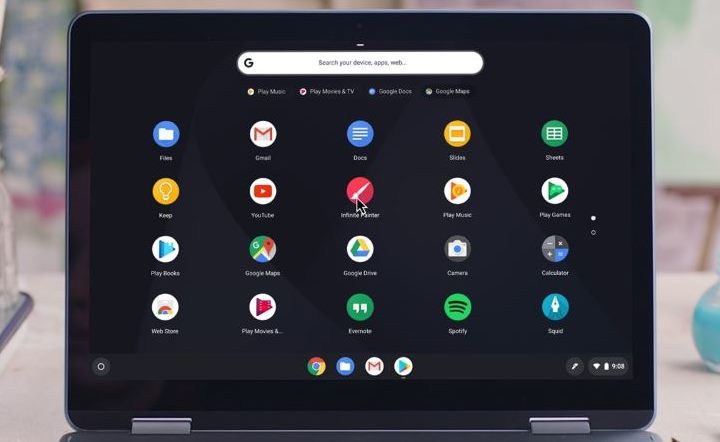Google Extinguishes 'Campfire' Dual-Booting Windows 10 on Chromebooks
Evidence from last year showed that Google was working on dual-booting Chrome OS alongside “AltOS,” a codename believed to be referring to Windows 10. This project, called Campfire, has now been deprecated.
Comments and code removal in the Chromium project show that the AltOS code has been deprecated. In other words, Google is killing the project before even giving it a chance to ship to consumers.
Granted, it didn’t make too much sense for Google to officially support its main OS competitor in the notebook market in the first place.
Chrome OS May Not Need Windows 10 To Succeed Anymore
One of the largest drawbacks of Chrome OS is that it can’t (or couldn’t) run full programs. However, Chrome OS has slowly gained, first, support for all Android applications, and, soon full Linux programs, too.
Google announced an experimental version of Project Crostini last year, an initiative that will allow Chromebooks to run any Linux application. At this year’s Google I/O, the search company announced that all of this year’s new Chromebooks will be able to run Linux applications by default.
Support for all Android and Linux applications should drastically reduce the need for Windows 10 support on Chromebooks. Furthermore, even if Google didn’t have a problem with supporting Windows 10 and Chrome OS dual-boot on Chromebooks, the company may have still ultimately realized that most users don’t like to switch between operating systems. Having everything in one place is much more convenient and Chromebooks are supposed to be all about simplicity and convenience.
Get Tom's Hardware's best news and in-depth reviews, straight to your inbox.
Lucian Armasu is a Contributing Writer for Tom's Hardware US. He covers software news and the issues surrounding privacy and security.
